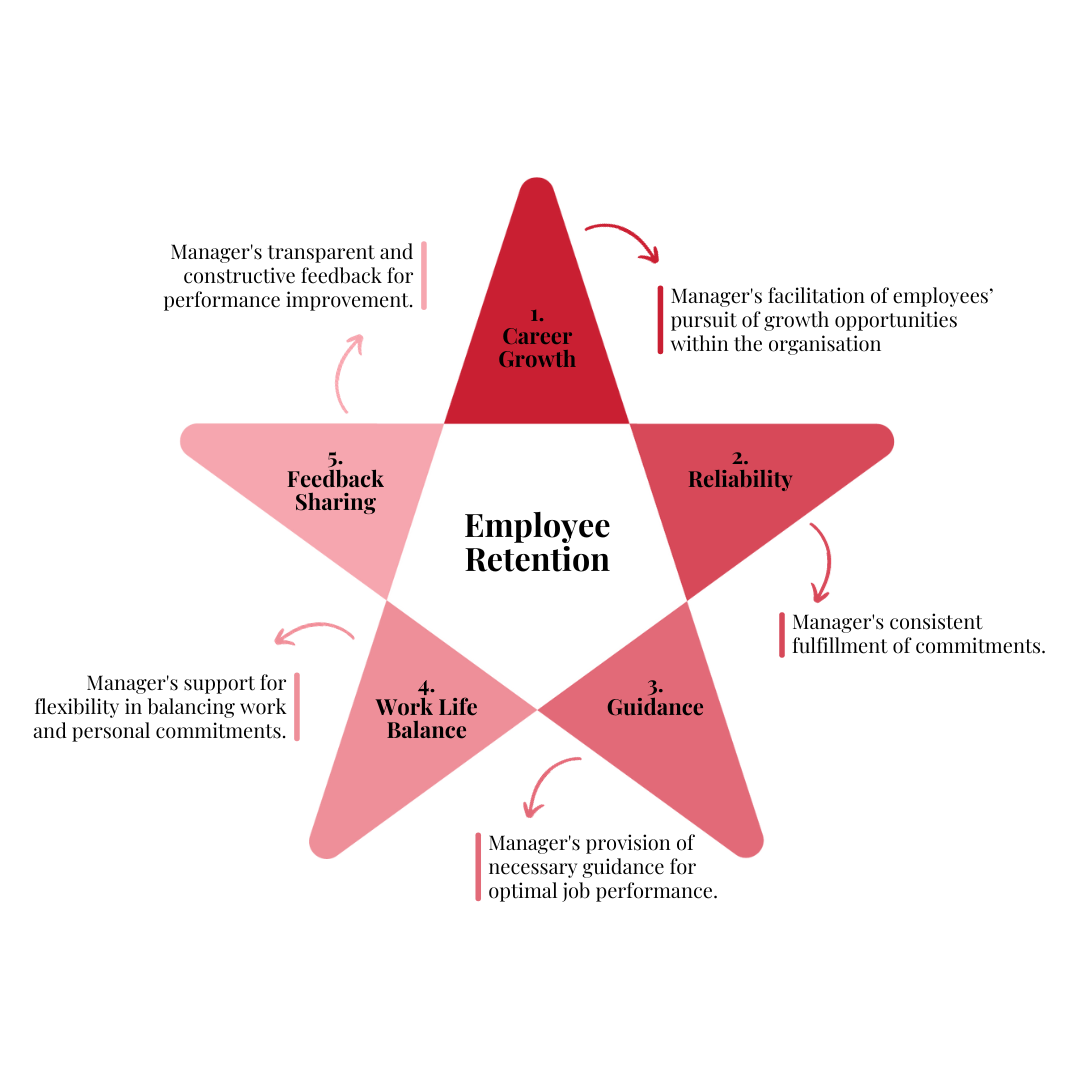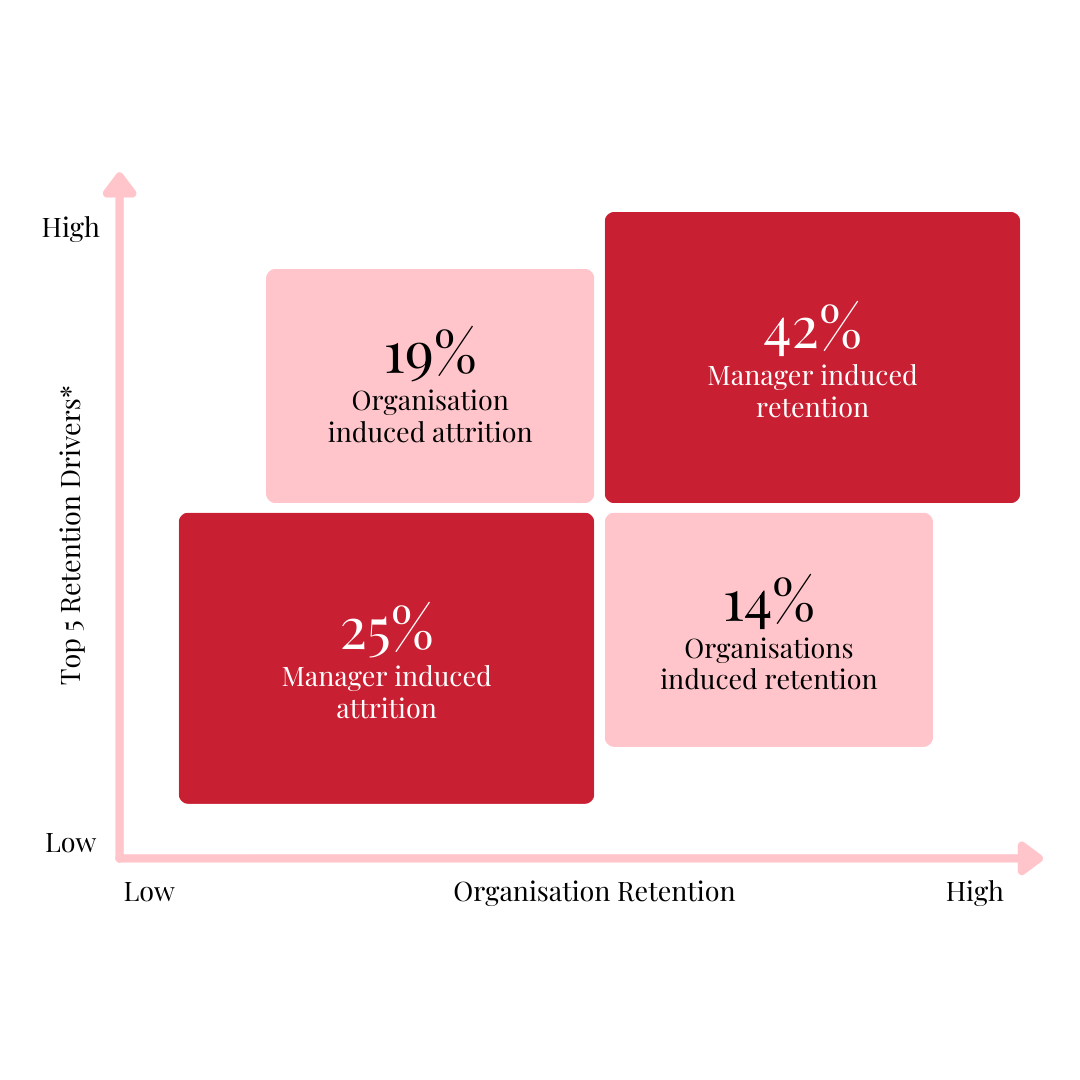The you-live-only-once generation counts money as important in their quest for a meaningful career and life. Money alone, however, is not enough to appease the new generation of employees, managers, and founders.
The new-age employee is increasingly seeking a “sense of purpose” in their careers.
Consider the not-yet-25 Zepto founders, for instance. In their interviews, the Zepto founders, often feted as among the wealthiest self-made young Indian entrepreneurs, recount how they dropped out of Stanford when they sensed an opportunity – and a need — to create “something unique for consumers” during the Covid-19 pandemic. Riding on the e-commerce boom, was thus born Zepto.
The pursuit of "something unique," “job satisfaction”, and the quest for “one's true calling” is on the rise.
This generation is marked by impatience, hunger, and a relentless drive to achieve their aspirations.
So, while money is definitely important, it’s not the most important driver in one’s career. The modern-day Manager today has come to realize, perhaps the hard way, that “more money will not help you retain talent”.
Money remains an important factor. It has always been. Today, however, there are other more important factors that make money, perhaps, an “important add-on”. The huge uncertainty and all-round churn triggered by the Covid-19 pandemic made this transition at the workplace all the more pronounced. The phenomenon where many sought to rediscover a sense of purpose and meaning in their career led many to quit, dubbed as the “Great Resignation”. Money, or the lure of lucre alone, will not help retain such driven employees.
So, more money alone then will not help you retain talent, dear new-age manager!
Our research shows that the top five drivers for managers to retain teams are “Career Growth”, “Reliability”, “Guidance”, “Work-Life Balance”, and “Feedback Sharing”.

It’s important to understand why and how the manager drives employees to stay on (or quit, for that matter).
A great manager ensures that team members find ample room for performance-based growth in the organization. Team members then often look up to the reporting manger as a “reliable reporting manager”. In other words, a great manager fulfills all the commitments, and thus is “highly reliable”. Of course, a great manager must always be a master of his craft, and should be able to chip in, in hours of need. So, a great manager guides team members in ensuring that they perform at their optimal levels. Great managers also share regular, reliable feedback and encourage a work-life balance for the workforce.
It’s the manager who often has a key role in retaining employees.
According to research carried out by us at Great Manager Institute®, Manager-induced retention is as high as 42%. In contrast, an Organization-induced retention is only 14%.
Of course, the manager can also be the reason why employees quit. According to GMI research, 25% of the employees who quit, do so because of the manager, while organization-induced attrition stands at 19%.

Our findings at GMI are corroborated by other studies.
A 2021 McKinsey study, cited, said that “as many as 52% of employees left when they felt shortchanged by their managers” while “54% of employees quit when they didn’t feel valued by their organisations”.
The employee then plans a long-term career with the organisation, and remains aligned with its goals and objectives. It’s the “Great Manager” who develops this process into an organizational culture.
When the employee gets flexibility and freedom to perform, recognition at the workplace, and a sense of purpose, the employee experience and overall engagement become truly fantastic.
Of course, a good manager will have a price. Or, as a 2022 Harvard Business Review paper said, “the ability to extract value.
The paper, titled “The Real Secret to Retaining Talent” noted: “Nothing has matched topflight managers’ ability to extract value: Steve Ballmer made the vast majority of his $ 96 billion fortune by being Bill Gates’s first business manager. Eric Schmidt’s $ 2.4 billion net worth came from taking the reins of Google for a decade. Meg Whitman’s $ 5 billion (came) from serving as eBay’s CEO for 10 years,
A 2022 Harvard Business Review case study based on a case developed at MDI Gurgaon by Jyotsna Bhatnagar and Rakesh Bohra, said: “To keep pace with societal and technological change, companies today need to be flexible with – and offer flexibility to – their workforces.
The McKinsey article mentioned earlier said “If companies make a concerted effort to better understand why employees are leaving and take meaningful action to retain them, the Great Attrition could become the Great Attraction”.
It’s the Manager, then, who will have to step up and act as employees’ friendly stepping stone towards a fulfilling career.
The Manager — that crucial cog in the wheel-like organization — can then well and truly act as a catalyst to retain talent — by being flexible and firm, by being empathetic and farsighted.
So, yes, money is important. However, money is not the most important factor for the employee. And, to reiterate, more money alone will not help retain talent.
The modern-day Great Manager, then, will have to lead from the front, and act as the comrade-philosopher-guide to employees to help them perform at their optimal levels, while helping them lead purposeful careers and meaningful lives.
The message to promoters, founders and CEOs, then? While more money alone will not help you retain employees, a Great Manager will definitely be able to put together, and retain employees, committed towards long-term organizational objectives and values, and driven by excellence and meritocracy.









